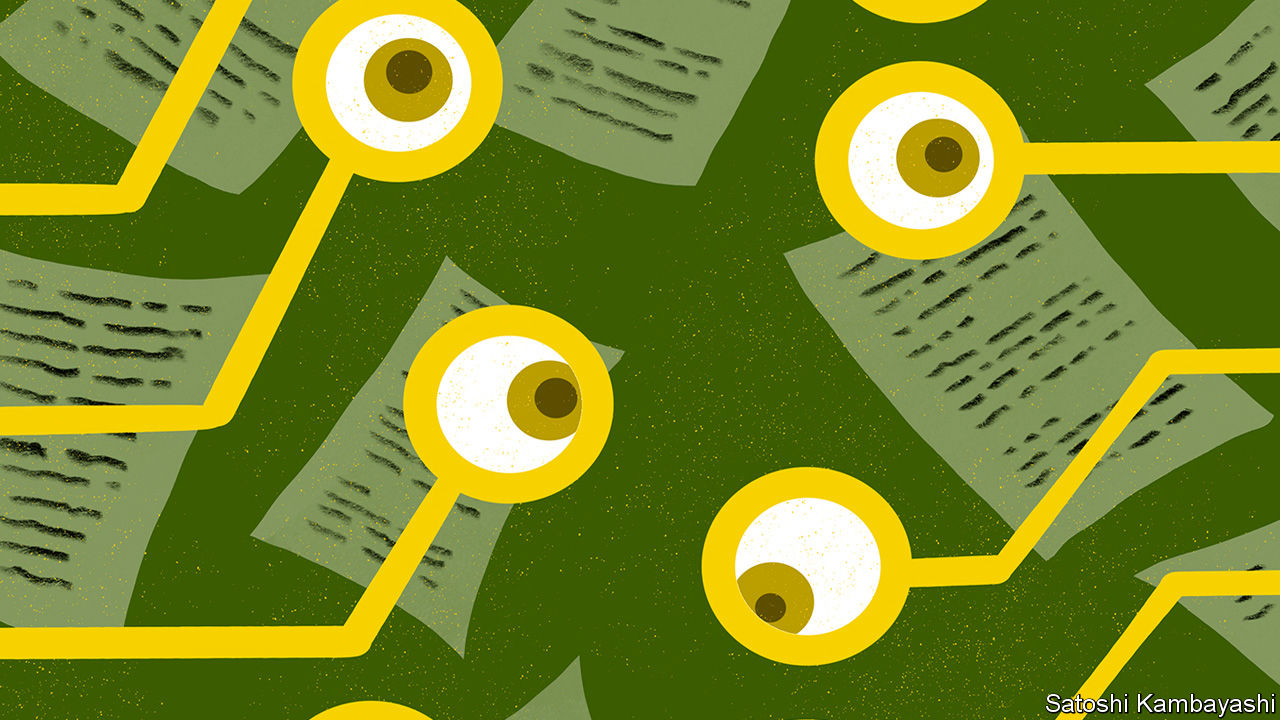
LONG hours have been the bane of the legal profession for ages; few of them involve thrilling courtroom antics. As a junior corporate lawyer at Davis Polk & Wardwell, a law firm in New York, John Bick remembers spending most of his waking hours poring over contracts looking for clauses that could complicate or kill off a deal. Even once he became a partner he still had to pitch in on due diligence for large transactions. In 2015 nearly a third of British lawyers were looking to leave the profession, according to the job searches of more than 1,000 of them by Life Productions, a career-change consultancy, perhaps because of the drudgery.
Such dissatisfaction may recede in future. Now on his firm’s management committee, Mr Bick is drafting in artificial intelligence (AI) to do the gruntwork—like many others at top law firms in New York and London. The shift could transform lawyers’ work and slash costs for clients.
-
Why Japan is going to accept more foreign workers
-
Arab states are losing the race for technological development
-
Why art exhibitions are returning to domestic settings
-
Transcript: Interview with General Mark Hicks
-
Trans-inclusive feminist voices are being ignored
-
A British traveller’s travelogue
Prestigious firms make their money by throwing large numbers of bodies at huge stacks of paperwork. During discovery, a pre-trial procedure in America, for example, both sides exchange heaps of documents that must be combed through for evidence. Junior lawyers dig up and compare judges’ decisions on similar cases, or arguments previously made by opposing counsel, to prepare for litigation.
A growing number of legal startups now apply machine-learning techniques to these tasks. The algorithms can process much more paperwork than humans in a fraction of the time. They recognise clauses and point out anomalies. They might highlight contracts where liability is unlimited rather than limited. They can even point out contracts where key clauses are absent. The latter is something that humans do not always reliably do, says Noah Waisberg, a former corporate lawyer who founded Kira Systems, a software tool that uses machine learning to review contracts.
The potential gains are large. Due diligence can be so time-consuming that it typically accounts for as much as half of the fees that lawyers charge for advising on deals. Many firms, including Davis Polk, as well as Freshfields and Clifford Chance in London, use Kira to help with document review. The firm’s software is trained on a set of documents to recognise more than 450 clauses, such as “change-of-control” provisions which specify the termination of a contract in the event one of the parties is taken over. Lawyers can then tinker with it further to recognise more obscure clauses, or even those in different languages. Other software firms that use AI to review documents include Luminance and RAVN, both of which are based in London and count big law firms as customers.
Machine learning can also help prepare for trial. It speeds up discovery, and assists lawyers in drawing up a litigating strategy. Lex Machina, a Silicon Valley startup now owned by Lexis Nexis, a legal-information provider, uses court documents from previous cases to make predictions about a particular case, such as its time to trial, its likelihood of success in various jurisdictions, and the damages it could win.
Some tech firms are aiming at full disintermediation, developing “robot lawyers” to deal with certain tasks. LISA, a British AI tool, helps people draw up non-disclosure agreements, removing the need for expensive human lawyers to be apprised of confidential (and perhaps embarrassing) details. Others aim to help people appeal against parking tickets or draw up rental leases without incurring legal expenses.
The savings from using machine-learning software are often hard to predict. It is early days and every case is different, says Isabel Parker, chief legal innovation officer at Freshfields. But the time spent on document review can fall by as much as 80%, which is likely to translate into lower fees for clients.
Will legal employment eventually shrink? The jury is still out. Some firms expect to employ fewer graduates. But others argue that cheaper services could encourage clients to consult their lawyers more. And although some tasks are automatable, many others rely on human judgment. AI might pinpoint atypical clauses in contracts, for example, but it cannot decide if the anomaly is a deal-breaker. In any event, lawyers should start to find their work more interesting.
Source: economist
Law firms climb aboard the AI wagon